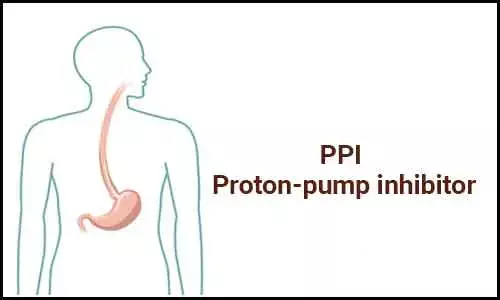- Home
- Medical news & Guidelines
- Anesthesiology
- Cardiology and CTVS
- Critical Care
- Dentistry
- Dermatology
- Diabetes and Endocrinology
- ENT
- Gastroenterology
- Medicine
- Nephrology
- Neurology
- Obstretics-Gynaecology
- Oncology
- Ophthalmology
- Orthopaedics
- Pediatrics-Neonatology
- Psychiatry
- Pulmonology
- Radiology
- Surgery
- Urology
- Laboratory Medicine
- Diet
- Nursing
- Paramedical
- Physiotherapy
- Health news
- Fact Check
- Bone Health Fact Check
- Brain Health Fact Check
- Cancer Related Fact Check
- Child Care Fact Check
- Dental and oral health fact check
- Diabetes and metabolic health fact check
- Diet and Nutrition Fact Check
- Eye and ENT Care Fact Check
- Fitness fact check
- Gut health fact check
- Heart health fact check
- Kidney health fact check
- Medical education fact check
- Men's health fact check
- Respiratory fact check
- Skin and hair care fact check
- Vaccine and Immunization fact check
- Women's health fact check
- AYUSH
- State News
- Andaman and Nicobar Islands
- Andhra Pradesh
- Arunachal Pradesh
- Assam
- Bihar
- Chandigarh
- Chattisgarh
- Dadra and Nagar Haveli
- Daman and Diu
- Delhi
- Goa
- Gujarat
- Haryana
- Himachal Pradesh
- Jammu & Kashmir
- Jharkhand
- Karnataka
- Kerala
- Ladakh
- Lakshadweep
- Madhya Pradesh
- Maharashtra
- Manipur
- Meghalaya
- Mizoram
- Nagaland
- Odisha
- Puducherry
- Punjab
- Rajasthan
- Sikkim
- Tamil Nadu
- Telangana
- Tripura
- Uttar Pradesh
- Uttrakhand
- West Bengal
- Medical Education
- Industry
PPI use worsens outcomes in COVID 19 patients, finds study

Delhi: A recent study has shed more light on the association between the use of proton pump inhibitors (PPIs) and adverse clinical outcomes in patients with COVID-19 infection. The study is published in the Journal of Internal Medicine.
According to the study, PPIs use may cause excessive suppression of gastric acid production, leading to overgrowth of bacteria in the gut. This results in increased risk of secondary infection in corona virus infected patients. The increased risk of severe or fatal course of illness may also be due to the development of secondary pneumonia.
Syed Shahzad Hasan of the University of Huddersfield, in the U.K, and Dr. Chia Siang Kow of the International Medical University, in Kuala Lumpur, Malaysia searched the online databases for studies that evaluated the risk of adverse clinical outcomes among COVID‐19 patients with PPI use compared to non-use of PPI. The studies that investigated the use of PPIs on the risk of adverse clinical outcomes in COVID-19 with reported adjusted measures of association were included.
Key findings of the study include:
- A pooled analysis of three studies demonstrated a significantly increased likelihood for a severe or fatal course of COVID-19 with PPI use relative to nonuse (pooled odds ratio, 1.46).
- A pooled analysis of two studies also showed significantly increased odds for secondary infections with the use of PPIs in COVID-19 patients (pooled OR, 2.91).
"The increased risk for a severe or fatal course of COVID‐19 was small as observed in the effect size of our pooled analysis, the decision to discontinue PPIs in COVID‐19 patients should be based on an individual risk‐benefit assessment," wrote the authors.
"Nevertheless, our findings again serve as a reminder for clinicians to regularly review the continuing need for acid suppression in every patient with PPI use. Since the studies included are of retrospective design with limited heterogeneity, more prospective studies are required to substantiate our findings," they concluded.
Use of proton pump inhibitors and risk of adverse clinical outcomes from COVID‐19: a meta‐analysis is published in the Journal of Internal Medicine.
DOI: https://onlinelibrary.wiley.com/doi/full/10.1111/joim.13183
Dr Kamal Kant Kohli-MBBS, DTCD- a chest specialist with more than 30 years of practice and a flair for writing clinical articles, Dr Kamal Kant Kohli joined Medical Dialogues as a Chief Editor of Medical News. Besides writing articles, as an editor, he proofreads and verifies all the medical content published on Medical Dialogues including those coming from journals, studies,medical conferences,guidelines etc. Email: drkohli@medicaldialogues.in. Contact no. 011-43720751


